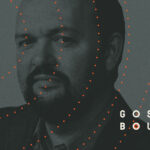I’m not the only one who has learned since 2020 to closely follow any news coming out of China. Of course, we’ve already learned how a disease that starts in Wuhan can upend all our lives around the world. But I’ve also tracked increasing government repression on the growing house church.
Back in January 2020, The Gospel Coalition cofounders Don Carson and Tim Keller addressed 2,000 Chinese house church leaders in Kuala Lumpur, Malaysia. The Wuhan delegation stayed home. But we still sent TGC senior writer Sarah Zylstra to report on how these Chinese church leaders developed their theology of suffering. These pastors—theologically trained, working mostly in cities, keeping the grace of Christ central to their ministry—find particular comfort in the doctrine of union with Christ.
You’ll find many of these insights in the new book Faith in the Wilderness: Words of Exhortation from the Chinese Church, edited by Hannah Nation and Simon Liu. Hannah explains what we can learn from these pastors:
In these dark times, let us set aside our relentless efforts to forget death and ignore suffering, and let us hear something about walking with Jesus that we have been missing. We descendants of Christendom fear cultural marginalization, but let us remember that those on the margins often preach the gospel more boldly, fearlessly, and humbly than those at the center, for they have nothing to lose and no stakeholders to upset.
Hannah is managing director for the Center for House Church Theology and content director for China Partnership. She joined me on Gospelbound to discuss persecution, pestilence, judgment, and justification.
Transcript
The following is an uncorrected transcript generated by a transcription service. Before quoting in print, please check the corresponding audio for accuracy.
Collin Hansen
I doubt I’m the only one who has learned in the last two years to closely track any news coming out of China. Yes, of course, we’ve already learned how disease that starts in Wuhan can upend all our lives around the world. But I’ve also dialed into the effects of increasing government repression on the house church, especially as their numbers have swelled. Well, back in January 2020, TGC, cofounders, Don Carson and Tim Keller addressed 2000 Chinese house church leaders who gathered in Kuala Lumpur, Malaysia, the Wuhan delegation stayed home. But we still sent TGC senior writer says asked her to report on how these Chinese church leaders developed their theology of suffering. These pastors who are theologically trained, working mostly in cities, keeping the grace of Christ central to their ministry, find particular comfort in the doctrine of union with Christ. And you’ll find many of these insights in the new book, faith in the wilderness. Words of exhortation from the Chinese church, edited by Hannah nation, and Simon Liu. I think you’ll love the perspective Hannah offers for what we can learn from these pastors. Here’s a taste of it. She says in these dark times, let us set aside our relentless efforts to forget death and ignore suffering. And let us hear something about walking with Jesus that we have been missing. We descendents of Christendom fear, cultural marginalization. But let us remember that those on the margins often preached the gospel more boldly, fearlessly. And humbly than those at the center, for they have nothing to lose, and no stakeholders to upset. Hannah is managing director for the Center for house church theology and Content Director for China partnership. And she joins me now in Gospel bound to discuss persecution and pestilence, judgment and justification. Hannah, thanks for joining me.
Hannah Nation
Thanks so much for having me. It’s good to be here.
Collin Hansen
Just tell us where did this idea originate?
Hannah Nation
Well, as you mentioned, there was a large conference that took place in Malaysia, in the early days of 2020, back before the world was up ended. And that conference, ended up essentially coinciding with the breakout of COVID-19, and the pandemic we’ve been living through. And one of the really remarkable things that happened at that conference, when it became clear how many Chinese participants weren’t going to be able to leave China and come participate in the conference, they decided to livestream most of the speakers back into China. And as I’m sure you know, this was not a decision that didn’t, you know, come with out risks. The Internet in China is one of the most regulated in the world. But amazingly, there were 10s of 1000s of device logins that they were able to track and just probably more people heard the speakers at this conference, live streamed, then would have if full delegations from China have been able to go to Malaysia. So after the conference concluded, the Chinese leadership essentially decided they were going to continue this work of live streaming, preaching of the Gospel across China, fully open without, you know, needing a password or any kind of protections. And their motto was really let the light shine in the darkness. That was the motto they chose for this endeavor. And what happened was over the course of 2020, while people were on lockdown, while so much was unfolding across China and globally, they held these weekend preaching events, and they and they kind of were like old school tent revivals in the digital space, you could kind of imagine it that way. And they decided they wanted to try to preach both evangelistically and to encourage the saints, which I thought was just very intriguing. And so I thought this is going to be amazing. Content is going to be an amazing perspective, preaching through a pandemic. And so we asked if we could translate their sermons as they were preaching them. And eventually by the end of 2020, we had a large body translated and and it just, they were beautiful. They were able to sit in the darkness and sit in the suffering that so many people were expecting In saying pointing people to Jesus and share the hope of the gospel. And so we wanted to share that outside of China, we wanted to be able to give people a glimpse of the hope that our brothers and sisters in China preach and how we can benefit from that we can learn from it.
Collin Hansen
What was the process like of selecting these particular sermonic epistles that you included in the book?
Hannah Nation
So, there are nine sermons that made it into the book, we translated closer to 20. And many, I mean, they were all great, but I really was trying to pick ones that I thought Western audiences would be able to connect to and relate to. So looking for sermons, that kind of expand beyond just the Chinese context to speak to a more global context. And also, I wanted the book to have some movement to it. I wanted it to start with an acknowledgement of where we are what we’ve experienced over the last several years. But I wanted to be very intentional in helping readers realize where they’re going and see the end destiny for those who have faith in Christ. So it ends in Revelation. And I think, yeah, I think there’s enough movement, cinematically through the book to help us not just stay where we are in our suffering, but to see the hope and the promise that we’re headed towards.
Collin Hansen
And there is a lot of hope. There’s a lot of hope in the book. Now, in his foreword, Tim Keller writes this, if we are only persecuted, and fewer, no people are finding faith or being attracted to Jesus through us. And we are likely being persecuted for our tech lessness if we are never persecuted, and we are likely compromising or being too quiet about our faith. But if both of these things are happening, if you are persecuted, and your testimony is bearing fruit, you are in a sweet spot. How do you see this dynamic playing out among Chinese Christians?
Hannah Nation
Yeah, I think that quote from Tim just really hits the nail on the head. One of the amazing things about the history of the Chinese church, particularly the house church has been its growth over really, its entire history of persecution and suffering. You know, a very quick little fact about the Chinese church in 1970. Most people outside of China assumed that Christianity and China was essentially dead. The legacy of the Cultural Revolution, the legacy of all outside Western missions, really ending in the 1950s. There just was this broad sense that the decades of missionary activity had essentially been fruitless. But one of the most beautiful things is that this wasn’t the case that instead, there was a church that was faithful through those decades of very severe persecution. And in starting in the 1980s, when a lot of the persecution started to ease, there was this just massive explosion of the gospel in China. And by 2010, estimates have been that there were between 80 and 100 million Christians across China, which is an astounding number. Between the earlier kind of the mid 20th century estimates in 2010, that’s roughly a 60 fold growth cost. This is one of the most amazing chapters in church history, in my opinion.
Hannah Nation
But all of that has happened in the midst of relief of suffering, ongoing suffering, even in the most open times. The house church has has never been without significant marginalization. They have never had legal rights. They have never had cultural power. So they’re wonderful testimony to the fact that God can and does work in powerful and incredible ways with churches are small and powerless, and by the world standards week, but that does not stop the Holy Spirit and His work. So when you look at the house churches today, they very much embody just a heart for a view Angela ism, they are very driven by evangelism. And they are persecuted. That’s not necessarily to say every individual church is persecuted, but as a whole as a group, they face persecution. And they they say they face cultural marginalization, for sure. But it’s continuing to grow. And the Holy Spirit works. And they are seeking to be a faithful presence in their cities, in ways that regularly caused me to stop in my tracks and, and just have to ponder what is going on over there.
Collin Hansen
Just a very powerful section in particular, your co editor, Simon Liu wrote, write something I just, it was very gripping to me. He said, only when you stop worrying about your life. Can you live out your faith in this deadly world? Those who are afraid of death and care about this life too much? Do not dare serve the Lord. Maybe this is just for my own sake, or for the rest of us listening and watching here. How do you escape the fear of death and love for this life? I mean, one of the stories I loved in here is the story of the seminary students who set up a table next to a fortune teller, and they told fortunes, along the lines of You will definitely die. If not now, then later, at least we are certain within 100. I mean, it’s very serious stuff. But the way they did it just struck me as so I mean, funny because it’s true. Funny, because it’s true. But how do you? What is what is that key to escaping fear of death and love, love for this life that you’ve learned from these Chinese pastors?
Hannah Nation
I mean, I wish one of them were here to answer that question. Because in so many ways, I recognize that I am untested compared to them. But I think one of the things that I think about a lot when I think about what they’re saying, and writing is just the centrality of grace in their lives. And I think Simon also says, he says, Christians are those who worship God without regard to their own lives. There’s another quote in the book from another chapter from Brian Lee. And he says, Christians are those who no longer have to prove their own value. And I think that you can only have that perspective, if you understand God’s grace in your life, you can only let go of the safety that we all seek, when your taste of God’s grace has been so great, that you’re really not striving to prove yourself anymore, and to save yourself anymore. I think those concepts of grace and our inability to save ourselves become very real in the face of suffering and death.
Hannah Nation
And often in contexts like our own where we live very comfortable middle class lives, I think it’s hard for us not to think of those themes purely spiritually, or kind of maybe overly spiritually, that, that grace takes on a new reality to it. When you’re faced with the hardships that my brothers and sisters in China face, if you can worship God, without fear for what you might lose, you have to be grounded in His grace and rooted in His grace.
Collin Hansen
Well, another quote in there from the book, if death is loss, then you do not want to lose life. Loss reminds us that we come into this into the world empty handed and naked, we bring nothing with us into the world. If you can grasp this, your losses will not devastate you. Not the most common message in American sermons. Yeah, for a lot of different reasons, but probably why it’s so beneficial to read this book. One of the sermons contends that because of persecution and pestilence, Chinese society is becoming similar to life under the Cultural Revolution. And as a terrifying claim, it seems that from what you and others have observed that persecution has increased significantly since 2018. In particular, could you tell us a little bit more about that, and perhaps help us to understand how COVID has played into that? Because I think Americans are pretty baffled. But one of the one of the closest China watchers that I follow, has consistently said that the zero COVID policy is not some sort of mandate necessarily on the people but something that people demand of the government. Maybe that’s Not your view or other people’s view, it’s just, I hadn’t thought about things that ways, I guess exposes the danger of imposing a certain American expectation on a different cultural and political context. But help us to understand especially what’s happened since 2018. And then how how COVID plays into that?
Hannah Nation
Well, in 2018, a new set of religious regulations were put into effect, and we knew they were coming. The question prior to 2018, was essentially how seriously they were going to be enforced. And 2018 revealed that they were going to be quite seriously enforced. And there was a marked uptick in attacks on churches. Beginning in 2018, there were some very well known churches, both in Beijing and in Chengdu, that were closed in 2018. And that signaled pretty significantly across the country, that we were entering into a new era 2020 kind of threw all of that into even more intensity intensified at significantly since the outbreak of COVID 19. It’s provided the government with a lot of opportunities to increase their regulation of Chinese society and life, not even just religiously, but across the spectrum, really. And you’ve seen just a very significant shrinking of the public square of what small ability to have freedom of speech online.
Hannah Nation
That’s been reduced further, and the attacks on the church have continued. It’s hard to say whether they worsened or not, in some ways, you could say that, but also, how can you know, if COVID had never happened, it may have continued regardless. So that being said, it’s a complicated place, China, you know, one of the things everyone who’s involved with China likes to say is, is you can, whatever you say the opposite is also true somewhere within China. So just, you know, my personal contacts from 2020 on, you know, I know many churches across the country who’ve been severely attacked. At the same time, I have good friends who have persevered in church planning in major cities without any interference whatsoever, they’re still able to rent buildings or rent, meeting spaces and hotels.
Hannah Nation
They’re still very open. I have one friend too. He’s really one of my my just personal heroes, he came to the US for seminary, he returned in 2018. And we had a lot of conversations just about how much he was counting the cost. He knew what the stakes were going to be going back. And he was a he’s a church planter, his his baby church was due to launch the week of the Wuhan lockdown. And so of course, there were all these questions about what was he going to do? Were they going to proceed? Was this gonna be the end of the church plant? They proceeded. They carefully followed whatever regulations were in place at the time, but I would say they were very bold and continuing with their church plant, and a year later, you know, his church has 100 people, and they baptize. I can’t remember the exact number but maybe eight adults, and they’re a Presbyterian, so eight adults and several kids on their first baptism Sunday. And I think the thing that just always blows me away is this was their these are their 2020 numbers. You know, this was the year that in the US, I knew many friends who were in church planning who were closing their church plants through 2020. And there were a lot of questions about what church planning in the US was going to look like. And here he is just demonstrating the power of the Holy Spirit when God wants to move.
Collin Hansen
Amen. Well, another interesting aspect of the book was different angles on spiritual meaning behind COVID-19. At a time when people are asking a lot of questions, what is the Lord doing here? What kind of interpretations Did you did you see I’ll prime the pump one of them that was pretty interesting was that one of the past yours identifies this as judgment against China for living only for money. I thought that was interesting. What What have you What have you heard? I mean, I’ll say in general, American pastors, as as you know, I think are very reluctant to make those judgments compared to most other times and places in history where it’s much more common.
Hannah Nation
Yeah. No, that’s exactly right. They are much quicker to view things as judgments from the LORD than we are at my memory is that this big was a big conversation, particularly with 911 and American churches. And I think we, in the decades since have not wanted to quickly pronounce something as a judgment from the Lord. And I mean, I confess, as an American Christian, it’s hard for me hearing them talk about things as judgments from the Lord. It’s not language I’m familiar with. It’s it’s not language that I really would be comfortable using myself necessarily, but they are. And I think two things stand out, in my mind, regarding this language that they use. The first is that they are very quick when they talk about judgments from the Lord. They don’t do so as the us versus them.
Collin Hansen
That was the 911 problem.
Hannah Nation
Yeah. So, one of the things that is always amazing to me is how much when they talk about something as a judgment from the Lord, they view the church under that judgment, as well, and as often deserving that judgment. And so they are very quick to talk about suffering as a time to repent, and particularly to repent of idols that have crept into the church. So it’s a regular experience, or regular conversation that I hear, where were pastors who have been arrested, talk about their drive to the police station, as their time to repent of their own idols, as they’re driving to the police station. And that’s always boring for me. I mean, I don’t know that I would respond that way in that situation.
Hannah Nation
But it’s a time for them to repent of their materialism is it time for them to repent of their thirst for comfort, is a time of them to repent of their judgment of those who are attacking them. So I think when they talk about COVID, as a judgment, it’s, it’s in that same vein, it’s in that same larger, just kind of ecosystem of talking about judgment and repentance. The other thing too, is the first chapter of the book, I think, really sets the tone for this idea. And essentially, that pastor is saying, judgments from God happen. The response is that we cast ourselves upon the Lord, we say, we’re going to fall into the hands of the Lord. And we’re able to do that because of the work of Jesus. We’re able to accept God’s judgment on this world, because as Christians, we know, we stand under the blood of Jesus. And even as these things unfold, again, back to what we were talking about earlier, we ultimately know where our value is, we’d know that we don’t have to prove ourselves. We don’t have to defend ourselves if judgment comes because Christ is our defense.
Collin Hansen
Yeah, amen. Well, a lot of messages as we’ve been talking about here, inspiring, bracing, countercultural, I think, to a lot of American and other Western readers, encouraging as we see the strength and resolve and a little bit of what I’ve written on the history of the house, church and revivals, there’s so much positive but even the best, most stalwart leaders, sometimes the Chinese church history have failed. You know, sometimes they’ve lost their resolve, sometimes they’ve given in to persecution. And I thought there was even a little bit of a window into that one of the pastor pastors writes this. In all suffering, the most difficult thing to believe is that God hears us and is with us. I’ve got to say, amid pestilence, persecution, I would I would struggle. I think in a lot of ways to believe this. What what do you see in terms of the of the vulnerabilities? I think when we think about some of our heroes who are still now in jail in China, it would be easy for us to imagine that every day is is writing Philippians a set You know, but it probably isn’t. That way. There have to be some dark and discouraging moments some, as we’ve seen in other aspects of Chinese history. What? What do you see of that side of things?
Hannah Nation
Well, they are not heroes. They are men and, and women just like us. And I think it’s easy often for us to make heroes out of those who suffer persecution. But persecution is often very mundane. It’s not usually a big dramatic thing. And I think most your average Christian in China has that experience something like a violent arrest or a violent attack, what they experienced is much more mundane and much more just quiet. And I think those can often be the most tempting situations and the hardest. And it’s hardest when your livelihood is threatened, as hard as when your family or your kids are threatened. And right now, the strongest pressures on the house churches right now are in regards to children’s education, especially Christian education among minors, and this is becoming a huge burden and a huge struggle. So I think that’s where a lot of the the main temptations are today. But you’re right in the history of the house church, there have been many pastors that have fallen. And it is a it should be a resounding call to us to be in prayer for our brothers and sisters in China. I firmly believe that the Lord is at work and he’s not going to abandon his people. That’s not to say we aren’t called to be faithful and consistent prayer for them. The primary way we can help them face the struggles that they face is is through prayer and entering the Lord’s throne room on their behalf.
Collin Hansen
Got one one more question here with Hannah Nation, we’re talking about a book that she edited face in the wilderness words of exhortation from the Chinese church. Let’s narrow it down to this what is the most important or helpful or however you want to describe whatever superlative you want to use? thing you’ve learned from our brothers and sisters in China?
Hannah Nation
I think the most kind of paradigm shifting thing that I’ve learned from them is the way in which their allegiance to Jesus as their king shaped so much of their identity. They talk a lot about union with Christ. So when they talk about Jesus as their king, they’re not talking about him as someone who’s distant or far away. It’s a very intimate relationship is a very intimate understanding of Christ’s presence with them. But the thing that I find myself being shaped by in their theology is this understanding that ultimate allegiance matters and your ultimate love, your highest love and life matters, whether it’s standing against just all the things we might have in common with them materialism, secularism, just the digital age we live in, or whether it’s something that we don’t experience, like political persecution, at the end of the day, the things that fight for our hearts and fight for our loves, are competing with our allegiance to Jesus as as our King and as our highest love in this life. And that’s something that they are writing a lot about. I think it’s, they haven’t written on it super explicitly yet, with a few exceptions, but But it’s in and through everything. And it’s probably what I’m most excited to see develop in their theology, and I think we will benefit from greatly hearing what they have to say on this topic.
Collin Hansen
There’s your next book is already in the works. My guest this week on gospel balm. It’s been Hannah nation, check out, check out the work. She’s edited faith in the wilderness words of exhortation from the Chinese church. Very powerful. Thank you, Hannah.
Hannah Nation
Thank you so much, Collin.
“The Most Practical and Engaging Book on Christian Living Apart from the Bible”
 “If you’re going to read just one book on Christian living and how the gospel can be applied in your life, let this be your book.”—Elisa dos Santos, Amazon reviewer.
“If you’re going to read just one book on Christian living and how the gospel can be applied in your life, let this be your book.”—Elisa dos Santos, Amazon reviewer.
In this book, seasoned church planter Jeff Vanderstelt argues that you need to become “gospel fluent”—to think about your life through the truth of the gospel and rehearse it to yourself and others.
We’re delighted to offer the Gospel Fluency: Speaking the Truths of Jesus into the Everyday Stuff of Life ebook (Crossway) to you for FREE today. Click this link to get instant access to a resource that will help you apply the gospel more confidently to every area of your life.
Collin Hansen serves as vice president for content and editor in chief of The Gospel Coalition, as well as executive director of The Keller Center for Cultural Apologetics. He hosts the Gospelbound podcast and has written and contributed to many books, most recently Timothy Keller: His Spiritual and Intellectual Formation and Rediscover Church: Why the Body of Christ Is Essential. He has published with the New York Times and the Washington Post and offered commentary for CNN, Fox News, NPR, BBC, ABC News, and PBS NewsHour. He edited Our Secular Age: Ten Years of Reading and Applying Charles Taylor and The New City Catechism Devotional, among other books. He is an adjunct professor at Beeson Divinity School, where he also co-chairs the advisory board.
Hannah Nation is the managing director for the Center for House Church Theology and the editor of Faithful Disobedience: Writings on Church and State from a Chinese House Church Movement. She’s a doctoral student in world Christianity at the University of Edinburgh. Hannah lives with her family in South Hamilton, Massachusetts. You can find her on Instagram and X.


































